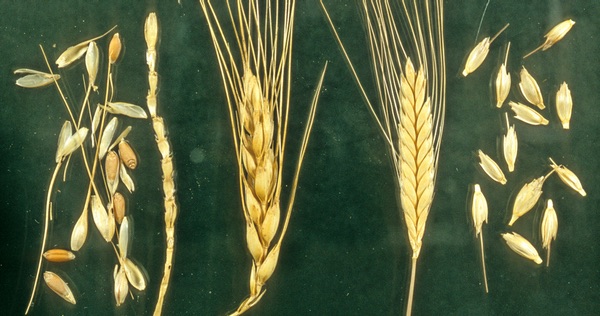
Podcast: Play in new window | Download (Duration: 6:19 — 5.2MB)
Subscribe: Google Podcasts | Spotify | Android | RSS | More
Ancient grains used to be rare and hard to find not because they contained some magical secret for a long and fulfilled life, but because they take a lot more work than modern wheats. Instead of the wheat berry popping free after a gentle rubbing, they need to be bashed and pounded. Now, of course, we have machines to do that kind of thing, but our ancestors were mostly only too happy to abandon hulled wheats, unless they had no option.



